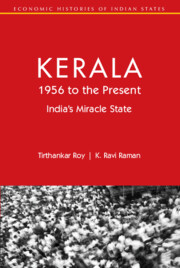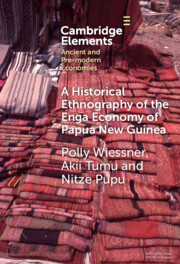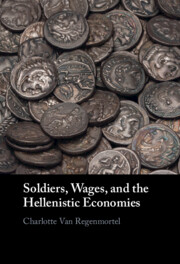Refine search
Actions for selected content:
26946 results in Economic history
Onassis Business History, 1924-1975. Edited by Gelina Harlaftis. Leiden/Boston: Brill’s Studies in Maritime History, 2024. 415 pp. Hardcover, $216.00. ISBN: 978-90-04-53988-4.
-
- Journal:
- Business History Review / Volume 98 / Issue 2 / Summer 2024
- Published online by Cambridge University Press:
- 31 October 2024, pp. 598-601
- Print publication:
- Summer 2024
-
- Article
- Export citation
Inside IBM: Lessons of a Corporate Culture in Action. By James W. Cortada. New York: Columbia University Press, 2023. 458 pp. Hardcover, $45.00. ISBN: 978-0-231-21300-4.
-
- Journal:
- Business History Review / Volume 98 / Issue 2 / Summer 2024
- Published online by Cambridge University Press:
- 15 August 2024, pp. 604-606
- Print publication:
- Summer 2024
-
- Article
- Export citation

Kerala, 1956 to the Present
- India's Miracle State
-
- Published online:
- 31 May 2024
- Print publication:
- 28 November 2024

A Historical Ethnography of the Enga Economy of Papua New Guinea
-
- Published online:
- 31 May 2024
- Print publication:
- 20 June 2024
-
- Element
- Export citation

Soldiers, Wages, and the Hellenistic Economies
-
- Published online:
- 21 May 2024
- Print publication:
- 09 May 2024
Chapter 2 - The Concept of Wage Labour
-
- Book:
- Soldiers, Wages, and the Hellenistic Economies
- Published online:
- 21 May 2024
- Print publication:
- 09 May 2024, pp 31-49
-
- Chapter
- Export citation
9 - Fragile StrengthCoping with Currency and Oil Crises
- from Part III - Sustaining Miracles, 1973–1989
-
- Book:
- Ruins to Riches
- Published online:
- 12 April 2024
- Print publication:
- 09 May 2024, pp 183-202
-
- Chapter
- Export citation
Chapter 4 - Forms of Remuneration and Standards of Living
-
- Book:
- Soldiers, Wages, and the Hellenistic Economies
- Published online:
- 21 May 2024
- Print publication:
- 09 May 2024, pp 101-142
-
- Chapter
- Export citation
Acknowledgements
-
- Book:
- Soldiers, Wages, and the Hellenistic Economies
- Published online:
- 21 May 2024
- Print publication:
- 09 May 2024, pp x-xii
-
- Chapter
- Export citation
Epigraphic Dossier
-
- Book:
- Soldiers, Wages, and the Hellenistic Economies
- Published online:
- 21 May 2024
- Print publication:
- 09 May 2024, pp 197-216
-
- Chapter
- Export citation
5 - Consuming Miracles
- from Part II - Making Miracles, 1950–1973
-
- Book:
- Ruins to Riches
- Published online:
- 12 April 2024
- Print publication:
- 09 May 2024, pp 94-111
-
- Chapter
- Export citation
Acknowledgements
-
- Book:
- Ruins to Riches
- Published online:
- 12 April 2024
- Print publication:
- 09 May 2024, pp xi-xii
-
- Chapter
- Export citation
Maps
-
- Book:
- Soldiers, Wages, and the Hellenistic Economies
- Published online:
- 21 May 2024
- Print publication:
- 09 May 2024, pp xxi-xxiv
-
- Chapter
- Export citation
Introduction
-
- Book:
- Soldiers, Wages, and the Hellenistic Economies
- Published online:
- 21 May 2024
- Print publication:
- 09 May 2024, pp 1-7
-
- Chapter
- Export citation
Dedication
-
- Book:
- Soldiers, Wages, and the Hellenistic Economies
- Published online:
- 21 May 2024
- Print publication:
- 09 May 2024, pp v-vi
-
- Chapter
- Export citation
Charts and Figures
-
- Book:
- Ruins to Riches
- Published online:
- 12 April 2024
- Print publication:
- 09 May 2024, pp ix-x
-
- Chapter
- Export citation
Chapter 6 - Military Wage Labour and the Hellenistic Economies
-
- Book:
- Soldiers, Wages, and the Hellenistic Economies
- Published online:
- 21 May 2024
- Print publication:
- 09 May 2024, pp 167-186
-
- Chapter
- Export citation
Copyright page
-
- Book:
- Ruins to Riches
- Published online:
- 12 April 2024
- Print publication:
- 09 May 2024, pp iv-iv
-
- Chapter
- Export citation
Chronology
-
- Book:
- Soldiers, Wages, and the Hellenistic Economies
- Published online:
- 21 May 2024
- Print publication:
- 09 May 2024, pp xiv-xvii
-
- Chapter
- Export citation
Chapter 1 - Contextualizing Paid Military Service
-
- Book:
- Soldiers, Wages, and the Hellenistic Economies
- Published online:
- 21 May 2024
- Print publication:
- 09 May 2024, pp 8-30
-
- Chapter
- Export citation
